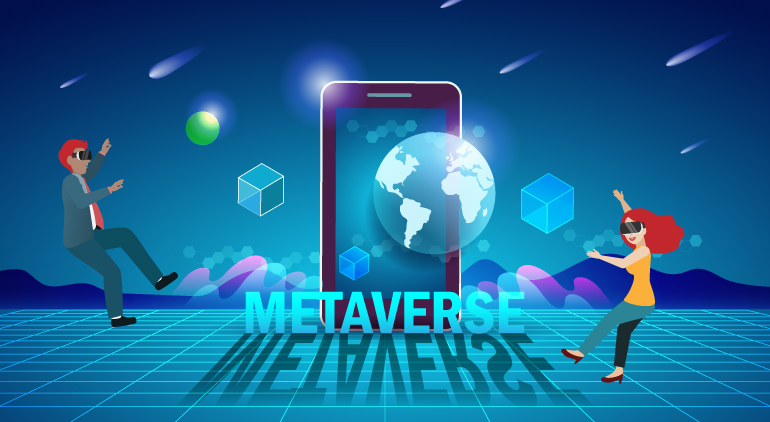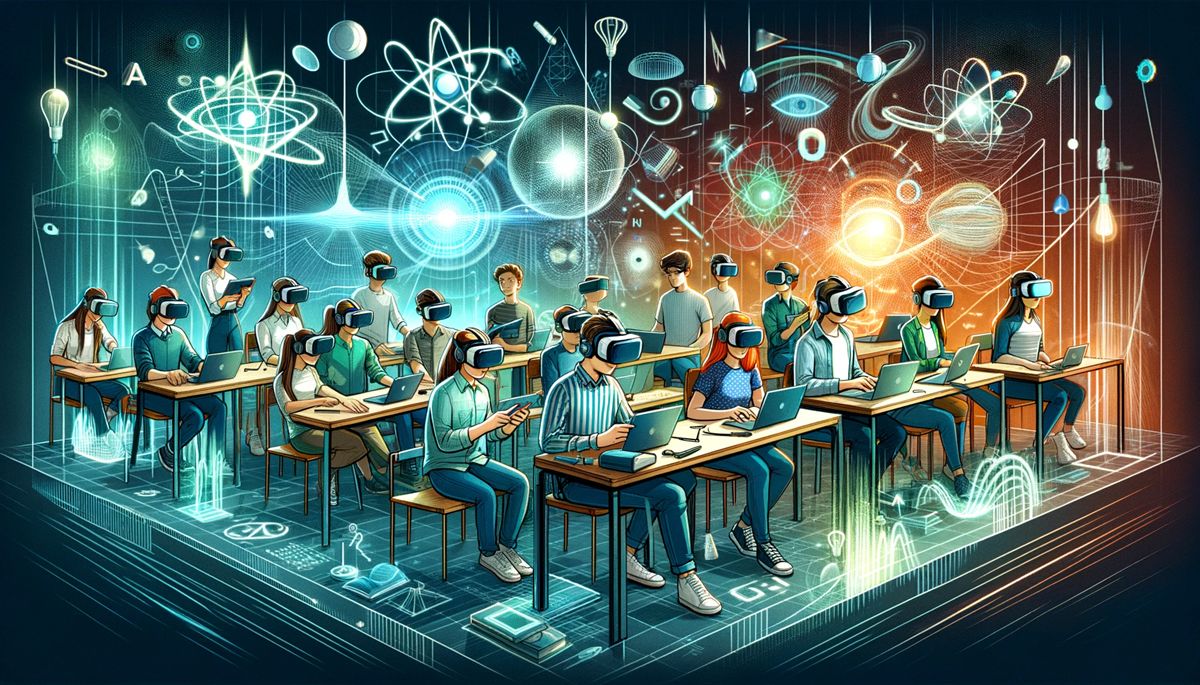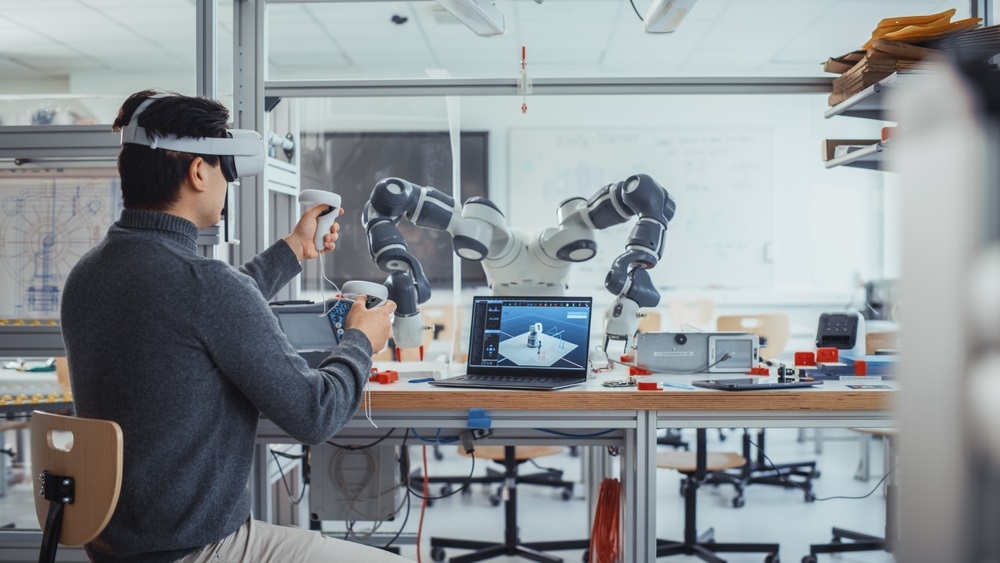The Significance of Virtual Reality in the Metaverse and Its Benefits to the Education System

● According to Chaos Theory Games, VR training can improve the employee success rate by 70%.
Virtual reality has brought impressive changes in various domains. For example, virtual reality helps design prototypes in the manufacturing industry.
Another example of robust virtual reality implementation is VR metaverse. Metaverse has benefits in many sectors, including manufacturing, education, and healthcare.
In this blog, we will discuss the significance of virtual reality in the metaverse. Further, you will read about its benefit to the education domain.
First, let us tell you a bit about virtual reality.
Virtual Reality
● Finance online says that the usage percentage of VR in effective education is 41%.
Virtual reality offers an entirely different experience than the real world. Virtual reality enables users to get involved in an immersive experience. In addition, virtual reality has an extensive implementation in various domains.
Let us understand what virtual reality actually does.
So, when a user wears a VR headset, they can get immersed in a virtual environment. In simple words, users can observe the virtual world, walk around and connect with virtual entities.
For example, a user is playing a virtual reality-based video game. Then, the user can be in that computer-generated place and have a more realistic gaming experience.
Now, let us understand the role of virtual reality in the metaverse.
Virtual Reality in the Metaverse
The metaverse is a new technology that has a lot of potential in order to know how the metaverse will promote immersive learning in higher education. The term metaverse had its origin in 1992.
What is metaverse?
The metaverse is an iteration of a system that uses a computer, internet, and 3D world. It combines various technologies such as virtual reality, augmented reality, mixed reality, artificial intelligence, blockchain, and NFTs.
In this, the users can connect and interact with one another using different avatars. Therefore, this makes metaverse applications to be engaging and interactive.
In the recipe of the metaverse, virtual reality is the main ingredient. In fact, it sets the base of the metaverse. Virtual reality has a 3D world and immersive experience, which are even the fundamentals of the metaverse.
In addition, virtual reality has given rise to a realistic 3D environment in a computer-generated environment. Without all these features and entities, the metaverse cannot have a charm.
What is the Difference Between Virtual Reality and the Metaverse?
As stated earlier, virtual reality is one of the key technologies driving the metaverse. However, though virtual reality in the metaverse plays a vital role, there are significant differences.
One such difference is in technologies. Virtual reality faces some limitations as it has the characteristic of creating only a virtual environment.
However, apart from virtual reality, the metaverse is blessed with augmented reality, blockchain, and many related technologies.
Another significant difference is in the experience. For example, if a user is playing a virtual reality game, he will be completely immersed. In contrast, metaverse makes use of augmented reality as well to give a more realistic experience.
In addition, the use of virtual reality applications will have a limit on the number of users. Whereas with the metaverse, a single user can connect with many users from anywhere in the world.
There are differences between virtual reality and the metaverse. But the fact that virtual reality is the foundation of the metaverse remains unchanged.
So how virtual reality in the metaverse has benefits to the education domain? Let us understand it.
How Does It Benefit the Education System?
The education system is considered one of the most crucial domains in the world. It creates citizens or humans that further shape the world. In addition, with the vast advancement around, the education domain doesn't fail to explore it. And metaverse is one such technology.
Every education system focuses on offering an extensive knowledge base to students. The metaverse makes it easier. The metaverse lets educators create innovative and engaging academic content.
Plus, they can focus on making it as appealing as possible so that maximum students will connect with it.
The virtual reality-based metaverse allows users to have an immersive learning experience. Moreover, educators can create engaging assignments and tasks on the platform. They can have control of the total system.
The most exciting feature of the metaverse is avatars. Avatars can let students have fun with their metaverse appearance. Students can connect with others and complete experiments or modules with their avatars.
It makes the entire metaverse learning experience fun and engageable.
In STEM education, the metaverse can be effective. For example, students will get to learn at their own pace. In addition, they will be able to practice complex experiments as there will be no limit on using lab types of equipment.
Also, the metaverse can benefit from peer interaction and real-time hands-on experience in medical education.
iXR Labs and Its Contribution to Virtual Education
iXR Labs gives the education system three powerful assets- K-labs for engineering, science, and medical science. These three labs take science, engineering, and medical education to another level. Most importantly, iXR Labs makes students future-ready with robust K-labs.
Conclusion
● According to Fortune Business Insights, the global virtual reality in the education market was USD 656.6 million in 2018.
● It is expected to reach USD 13,098.2 million by 2026.
● Moreover, according to Globe News Wire, in 2021, the international market for the metaverse in education was USD 4.9 billion, and it may reach USD 94.9 billion by 2030.
The statistics above show that virtual reality and metaverse are both promising technologies. Virtual reality has proven its significance in various domains, including education. At the same time, the metaverse is a new technology.
Therefore, a lot of research and experimentation is going on in the metaverse. But, the VR metaverse seems to have a lot of potential to transform the education system.




